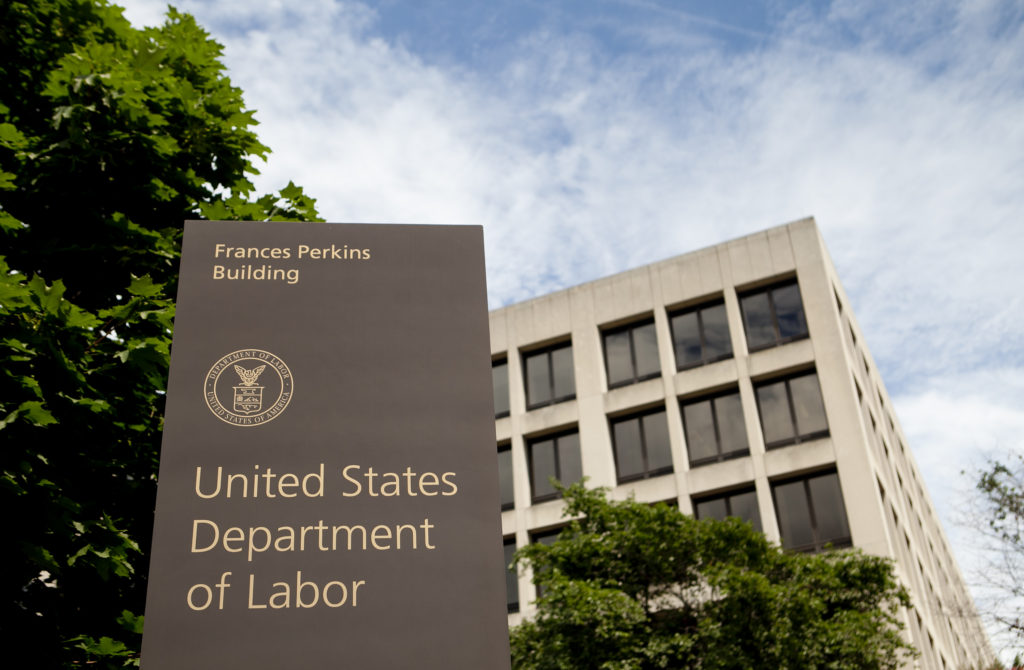Employers added 210K jobs in November, including 7.6K in accounting

Employment increased by 210,000 in November, and the unemployment rate declined by 0.4 percentage point to 4.2%, the U.S. Bureau of Labor Statistics reported Friday, but the job gains fell well short of economists’ expectations of 573,000 jobs, and a big slowdown from the 546,000 added in October.
The main job gains occurred in professional and business services, which rose by 90,000 jobs, including 7,600 jobs in accounting and bookkeeping services, as well as the transportation and warehousing, construction and manufacturing industries. On the other hand, employment in the retail trade sector declined in November. Average hourly earnings increased by 8 cents to $31.03.

Andrew Harrer/Bloomberg
The change in total nonfarm payroll employment for September was revised up by 67,000, from a gain of 312,000 to 379,000, and the change for October was revised upward by 15,000, from 531,000 to a gain of 546,000 jobs. Taking into account both of those revisions, employment in September and October combined was 82,000 higher than previously reported by the BLS.
The report indicates that while unemployment is falling, the pandemic is still holding back more employment gains as Congress continues to wrangle over the tax provisions in the Build Back Better Act proposed by the Biden administration.
“This month’s jobs report shows another month of steady job growth,” said Rep. Richard Neal, D-Massachusetts, chairman of the tax-writing House Ways and Means Committee, in a statement Friday. “Combined with the recent positive revisions to prior jobs reports, it’s clear that our economy is healing. We still need to strengthen the pathways back to work for many women — especially women of color — and continue to encourage all eligible Americans to get vaccinated and boosted as soon as possible. Our economic recovery hinges on our health, and with the omicron variant looming, now is the time to double down. The Senate must quickly pass the Build Back Better Act so we can continue pushing forward. The transformational legislation will cut taxes, lower costs for families, and create good-paying jobs.”
Republicans remain uniformly opposed to the legislation, however, and some Senate Democrats are still pushing for changes in the bill, especially when it comes to the contentious rollback of the cap on deductions for state and local taxes imposed by the Tax Cuts and Jobs Act of 2017.
“This is a miserable jobs report, there’s no spinning it any other way,” said Rep. Kevin Brady, R-Texas, the top Republican on the House Ways and Means Committee. “And due to his mishandling of the economy, President Biden is nearly one million jobs short of his promises from his last $2 trillion spending binge. The Senate ought to suspend any consideration of the $5 trillion Build Back Better bill until the President demonstrates he can heal this economy, lower inflation, and get Americans back to work.”
Separately, CBIZ, a Top 100 Firm, issued its monthly Small Business Employment Index, which tracks payroll and hiring trends for over 3,700 companies that have 300 or fewer employees, on Friday. It reported a seasonally adjusted decrease of -0.25% in November, which is a reversal of the positive hiring growth seen in both October and September.
The CBIZ SBEI found strong hiring in the West (3.15%) region for the third month in a row, probably due to delayed economic reopening following the Delta variant’s impact on the region. The Central (0.02%) region showed little change with near flat growth. The Southeast (-0.11%) and Northeast (-0.07%) regions both had small but nominal declines.
In terms of industry hiring, the biggest increases were seen in the arts and entertainment, nonprofit, professional services and retail sectors. However, the agriculture, construction, financial services and technology, and life science sectors experienced decreases in hiring.
“The decrease in hiring seen in this month’s report is an expected seasonal trend,” said CBIZ executive vice president Philip Noftsinger in a statement Friday. “We saw strong hiring gains as businesses prepared for the holiday shopping season in September and October and the resulting leveling out in November. The strong regional growth in the West indicates that businesses are continuing to rebound from the partial economic closures resulting from the Delta variant. The small declines seen in the Southeast and Northeast align with the data trends over the recent months.”


